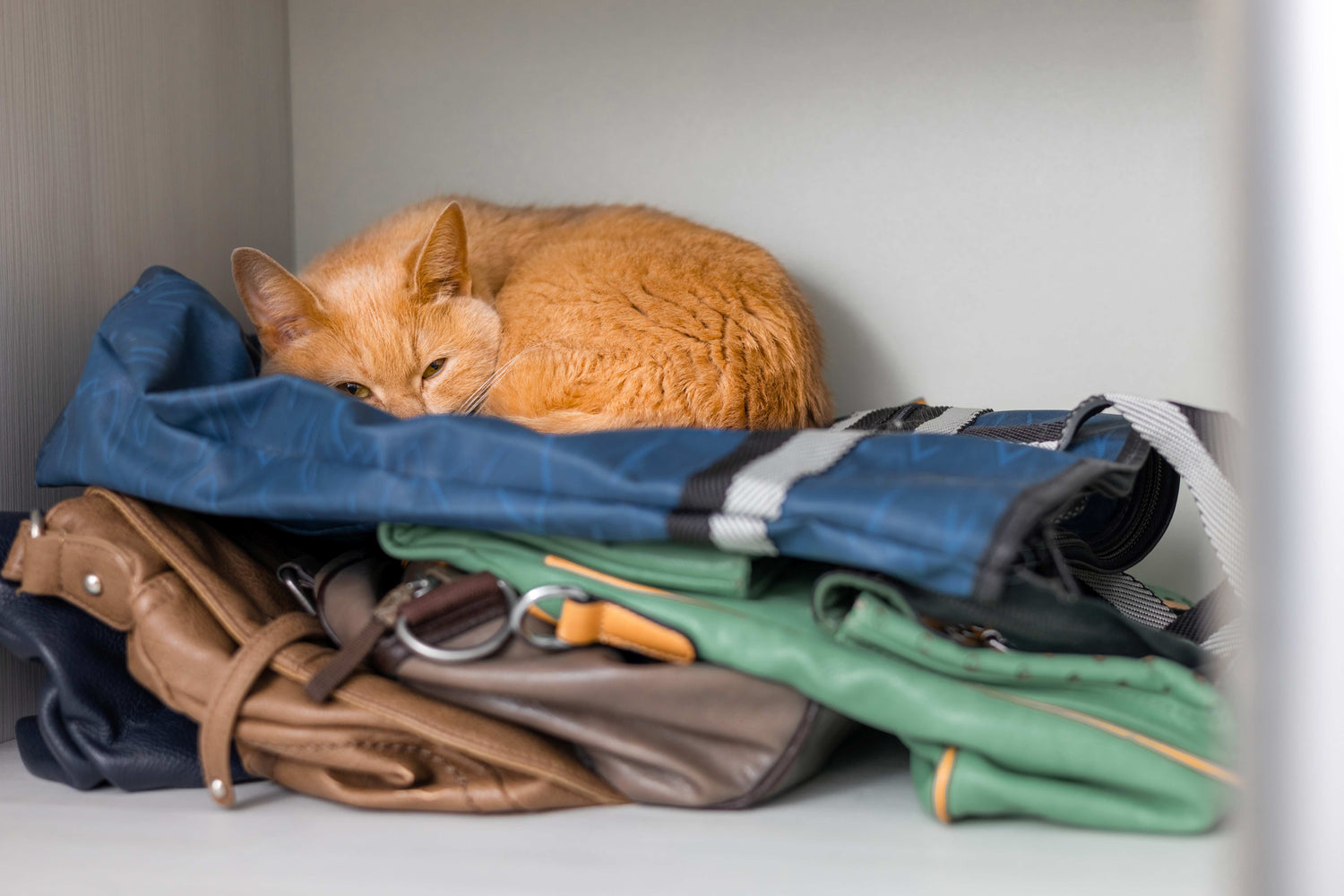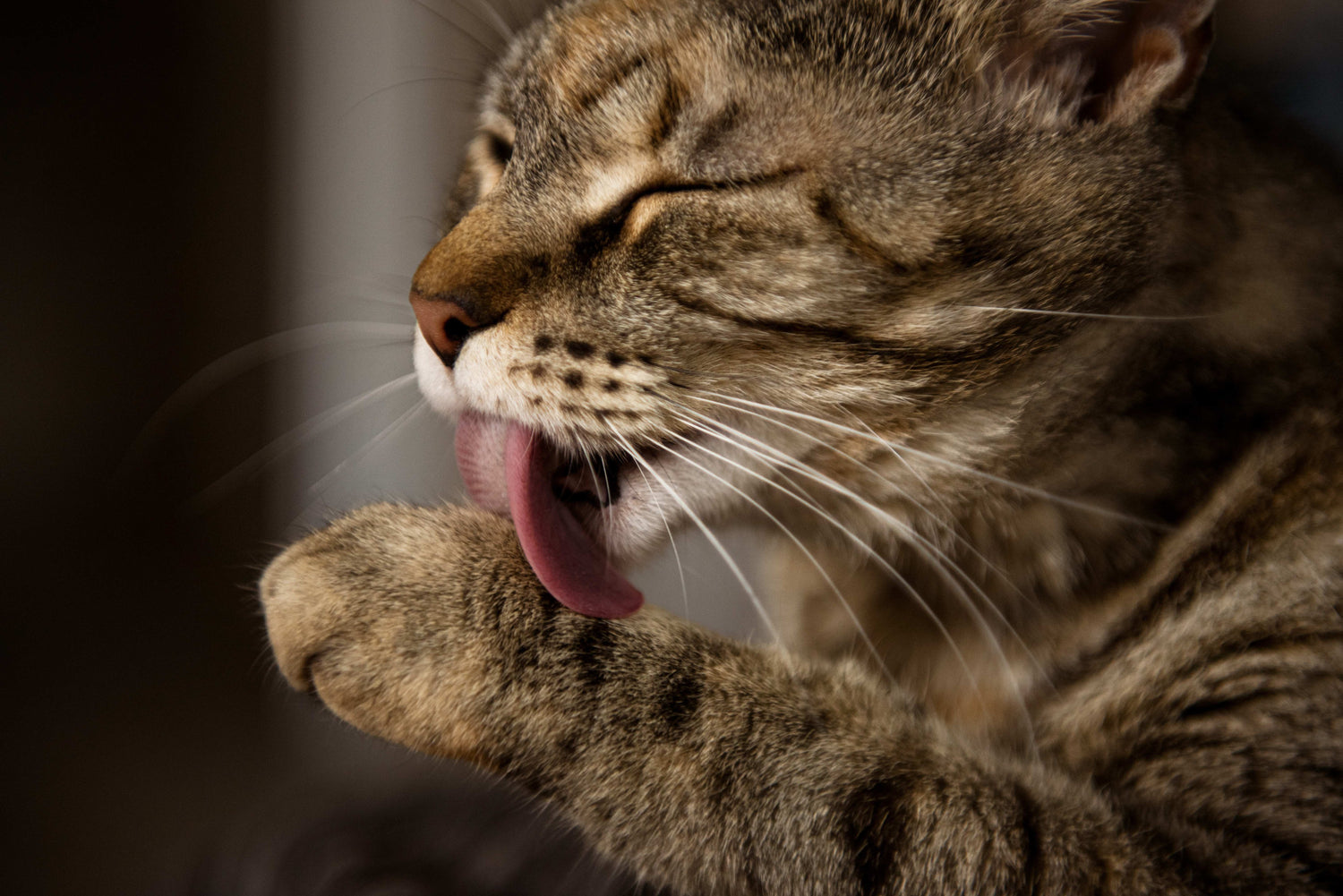Is your cat suffering from diarrhea and/or digestive problems? Depending on the accompanying symptoms, there may be various causes. In this guide, you will learn what triggers diarrhea in cats, which symptoms you can use to recognize it, and how you can help and treat your cat.
Causes of Diarrhea in Cats
Diarrhea in a cat indicates that there is something wrong with the animal's digestion. However, the reasons for diarrhea can be very different.
- As with humans, stress can have a negative effect on digestion and may be the cause of your cat's diarrhea. Cats experience stress primarily when their usual circumstances change. If your cat has recently moved house, had new or rearranged furniture, had strangers , had a new companion animal, or has experienced changes in feeding times or locations, this could already be a cause of the diarrhea.
- In addition, diarrhea can also indicate a parasite infestation in the cat. Parasites, such as worms or Giardia , often cause diarrhea and vomiting in cats, but can be easily treated with appropriate medication such as a worming treatment or Giardia-effective medications be treated.
- With the Nutrition Factors related to the cat are the most common causes of diarrhea. On the one hand, a cat can react with diarrhea if it has eaten something it is intolerant to, such as cleaning products, house plants or rubbish. This can even be a case of poisoning , which must be treated by a vet. It can also be caused by a food allergy or intolerance. If the cat is allergic/intolerant to an ingredient in its food , this results in a defensive reaction by the body, which can manifest itself in diarrhea, for example. A vet can recommend an exclusion diet (monoprotein, exclusive feeding for 10-12 weeks). determine whether there is an intolerance and recommend a change in feed. Since there is no reaction of the immune system in the case of a feed intolerance, a negative allergy test does not rule out a feed intolerance.
- A sudden change in food can also cause diarrhea in some cats. If you have recently started giving your cat a different food, this change may also be behind the diarrhea. feed changes It is recommended to feed the new food in slowly increasing amounts over 5-7 days.
If the above causes can be ruled out, certain diseases can also be the cause of diarrhea in cats. In the best case, it is an infection of the gastrointestinal tract (bacteria or viruses) . But a serious illness, for example of the thyroid, liver or pancreas , can also cause diarrhea and should be examined more closely by a veterinarian.
[Gastro1]
How to recognize diarrhea in your cat
The symptom of diarrhea in a cat is not always easy to recognize. Especially in outdoor cats that do their business outside of their own home. four walls, their suffering may go undetected for a longer period of time. Signs that indicate diarrhea and a wider problem are other symptoms such as vomiting, exhaustion and tiredness, weight loss and loss of appetite . Sudden changes in behavior such as unusual clinginess or increased withdrawal can also indicate problems.
The most telling sign of diarrhea is a change in the consistency of the feces. If the cat does its business indoors, this should be monitored. If the consistency of the feces has changed and it is mushy, slimy, watery or unusually discolored, the cat has diarrhea or another intestinal disorder. If the smell of your cat's feces has changed or the feces smell unusually strong, it could also be diarrhea. You should also be vigilant if the cat has very frequent bowel movements and spends most of its time near the litter box. In outdoor cats, diarrhea can also be manifested by them going outside unusually quickly and frequently.

Diarrhea in a cat: When should you go to the vet?
If you discover that your cat has diarrhea, you should first observe it closely to find out any possible causes. If the liquid stools are a one-off occurrence and your cat otherwise behaves normally and inconspicuously, it may just be a minor intolerance. However, if the diarrhea lasts longer than 24 hours or if other symptoms occur, you should consult a vet. If the diarrhea occurs in combination with vomiting, weight loss, tiredness and noticeable behavioral changes and your cat no longer drinks or eats, treatment is very likely required and an examination by a veterinarian and the administration of medication is necessary. If your cat's stool is red or black, this could indicate blood in the stool. If your cat has bloody diarrhea, you should take your cat to a doctor immediately. If possible, always bring a stool sample to the vet when you have diarrhea so that they can examine exactly what is causing your cat's gastrointestinal problems.
If your cat's diarrhea lasts for several weeks or keeps coming back after an interim improvement, it is chronic diarrhea. The tricky thing is that chronic diarrhea is very difficult to recognize. It is important to know that diarrhea is present even if there is a slight change in the stool, for example a more mushy consistency. This often goes undetected for a long time, also because the cat usually eats normally and shows no other signs of discomfort. Particularly in outdoor cats whose stools you do not keep an eye on, chronic diarrhea often only manifests itself after a long time in the form of noticeable weight loss in the cat despite normal eating behavior. In the case of chronic diarrhea, a careful examination by a vet is required in order to make a reliable diagnosis and determine the cause of the diarrhea.
In any case, you should be particularly vigilant if your cat has diarrhea. Even if the animal otherwise appears normal, diarrhea is no trivial matter; it causes your cat to lose a lot of fluid and valuable electrolytes. To counteract fluid loss and dehydration, give your cat fresh water to drink more often than usual and make sure that it drinks it and does not become further dehydrated.
How to help your cat with diarrhea
To help your cat with diarrhea, you should try to identify the causes of the diarrhea and counteract them. If your cat has been exposed to stress recently, eliminate the sources of stress as much as possible. Reverse major changes if possible and give your cat plenty of time and places to retreat to adjust.
Have you recently made an abrupt change in food? This change may have been too quick for your cat. It is better to get your pet used to the new food in small steps. If the cat has been poisoned indoors or outdoors (also think of plants in the house or garden) If this is a possibility, you should identify possible sources of danger as quickly as possible and remove them from the cat's reach. You should also consult a veterinarian.
In general, it is advisable not to let outdoor cats go outside if they have diarrhea, but to keep them indoors for observation. Firstly, this prevents the cat from eating something it is intolerant to again outside, and secondly, you can keep an eye on your pet's health at all times, ensure that it is eating the right food and drinking enough, and quickly see a vet in an emergency.
Regardless of the cause of the cat's diarrhea, it is best to feed it a light diet from now on so as not to put further strain on the intestines, but still provide the animal with sufficient nutrients. Light diets should be easy to digest and therefore have a low fat content. Suitable foods include gently cooked chicken or turkey, unseasoned rice or mashed potatoes. You can also add home remedies such as healing clay, psyllium husks or American elm bark to the food to help your cat with diarrhea. However, the use of home remedies should be carefully dosed and ideally discussed with your veterinarian in advance. In specialist shops you can also find diet food specially developed for cats with digestive problems and light diets for cats with food intolerances to remedy your cat's gastrointestinal problems, promote healthy digestion and support it with selected and gentle ingredients. These are available both as wet food and as dry food.





